Afghanistan floods: ‘I found my family's bodies in the streets’
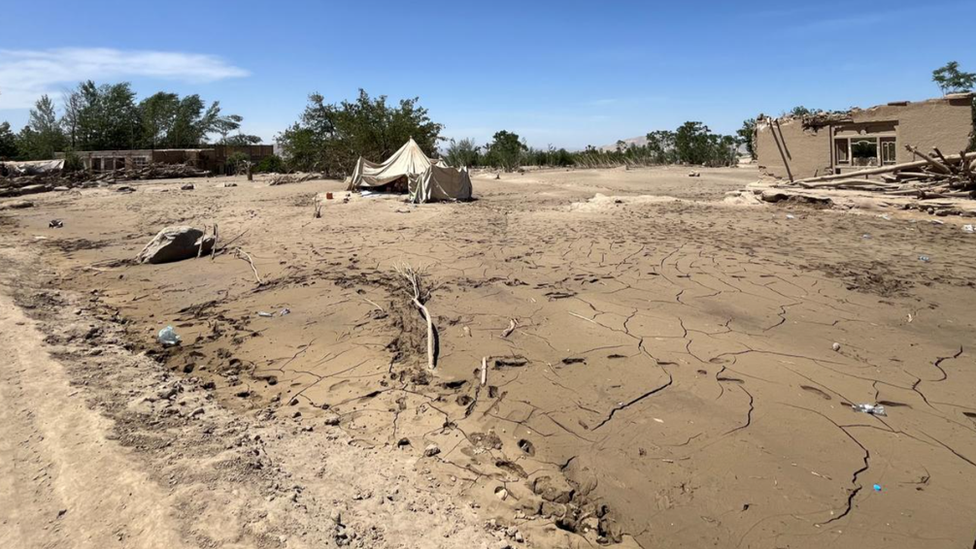
- Oops!Something went wrong.Please try again later.
The day after the flood waters hit, Noor Mohammed found the bodies of his family in the street and in the fields.
The 75-year-old had been just 100m away from his home in northern Afghanistan when he heard the deadly roar of water approaching.
Noor ran towards the house where his wife, sister, son and two of his grandchildren were resting.
But it was too late.
The sudden torrent of water swept away his family and home.
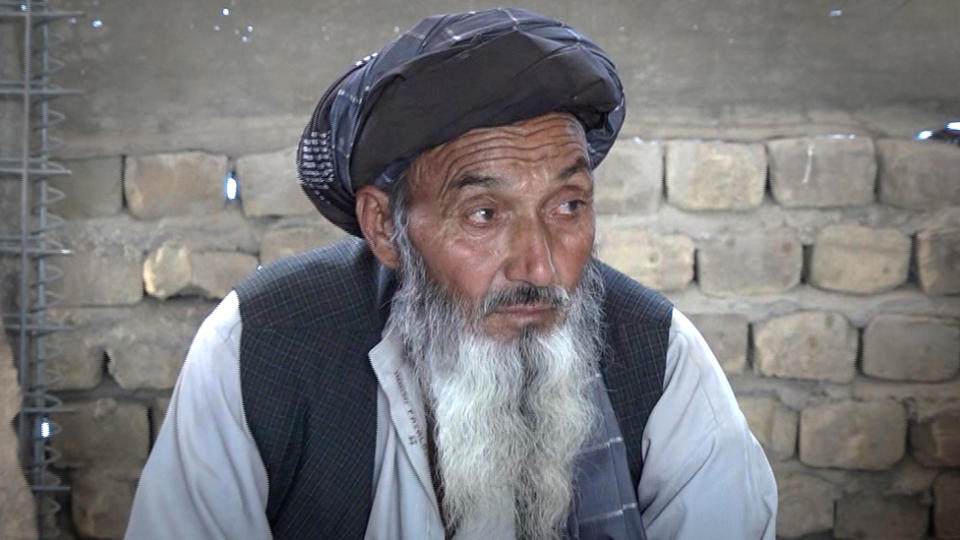
Flash floods hit on Friday, caused by a combination of unusually heavy storms following a dry winter, which has left the ground too hard to absorb all the rain. The destruction stretches for miles.
The World Food Programme says more than 300 people have died and 2,000 homes destroyed in the flooding, which affected five districts in the northern Afghan province of Baghlan. The number of casualties is expected to rise.
The provinces of Badakhshan, Ghor and western Herat were also severely damaged.
"I felt helpless," Noor says.
It was early evening when he frantically searched the area around his home in the village of Gaz in Baghlan, but could not find any trace of his family.
He gave up at 01:00 and, in the middle of the night, walked to his daughter Saeeda's house three hours away.
He returned home the next day and found the bodies of his family.
"It was devastating," he says.
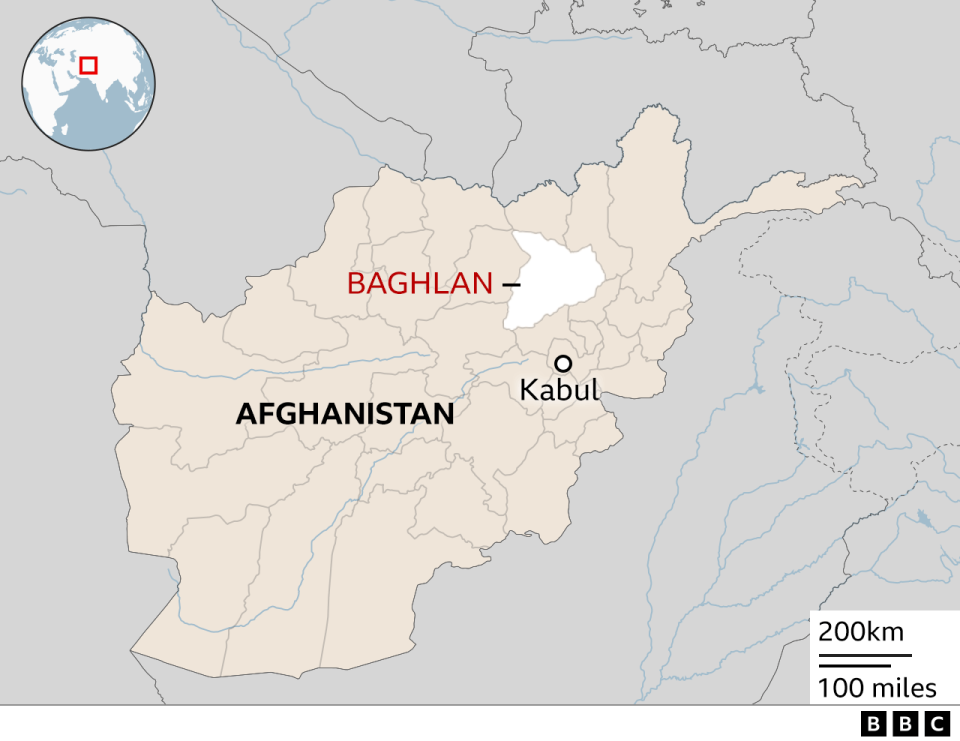
Noor says he has never experienced anything like it in his life - either from the natural disasters that frequently hit the area or the civil wars that have plagued the country.
Saeeda, whose 25-year-old daughter was one of Noor's grandchildren who died, says the approaching storm sounded like a monster and they were terrified.
In Noor's village, which is still inaccessible by road, most families have lost at least two or three relatives in the floods and are in desperate need of help.
"We have travelled to areas where everything is completely gone," says Rouzatullah, a nurse who visited one of the worst-hit villages called Fullol with his team.
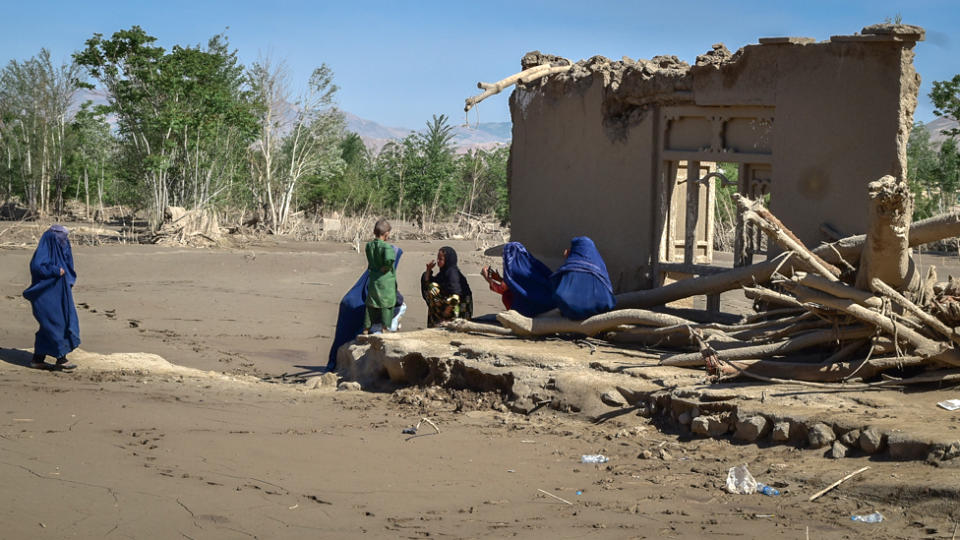
Uprooted trees, rocks, bricks and mangled cars stick out of the thick mud in Fullol. Once sticky with water, in the heat it has started to harden, making it even more difficult for those still digging, pulling out possessions.
Muhammad Gul is using a shovel to dig through the two rooms of his house.
"We haven't got even a glass left for a cup of tea, there is nothing," he tells the BBC. The only thing he has been able to salvage is a twisted bicycle which he loads onto a donkey.
Days after the flooding, some families are still searching for the bodies of their loved ones. At one house a crowd gathers. The body of a girl has been found; she is covered in a sheet and taken away by an ambulance.
Rouzatullah rushed to the area along with 15 other nurses, paramedics and doctors.
He says they helped more than 200 injured people, including one man who had lost 16 members of his family.
But they have not been able to reach some remote areas where people desperately need aid.
"There is no drinking water," Rouzatullah says, warning there might be outbreaks of waterborne diseases such as typhoid and dysentery.
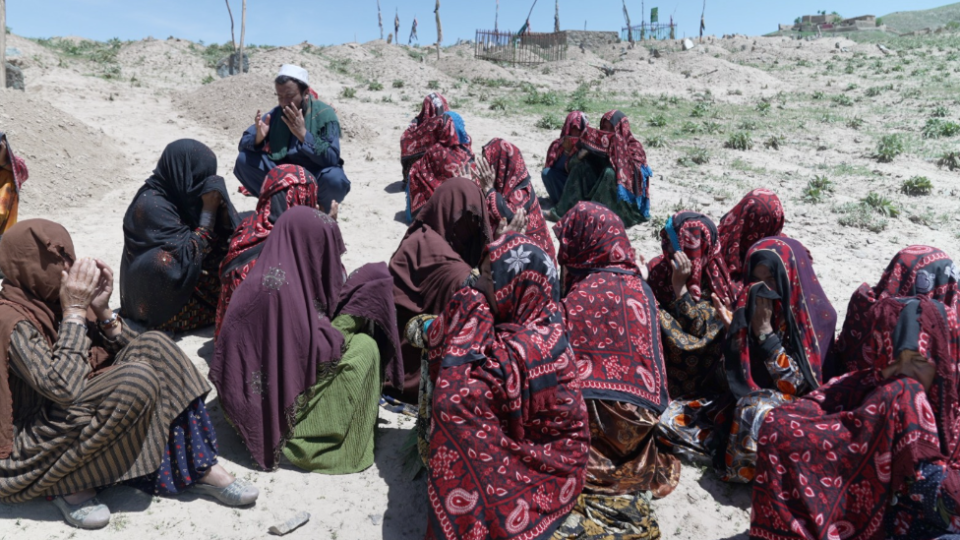
In the areas they have been able to reach, the team has started to set up mobile aid centres and are working to remove the dead bodies.
At each village the BBC is met with another story of loss.
One man shows us a picture of his five-year-old nephew, Abu Bakar. He was playing with his grandfather when the water hit. As they tried to escape, Abu Bakar was swept away. He had clung so tightly to his grandfather's leg as he tried to save himself that he left a mark. His mother could only watch as he lost his grip.
Abdul Khaliq was out of town when he heard about the flood. By the time he returned, all that was left of his family's houses was one small piece of bathroom wall. The rest is now flattened. Of 18 people, 10 of his family died, swept away.
"We were searching family members in knee-deep mud, so we took off our shoes and continued searching," he says. "Eventually, we found their bodies miles away from here."
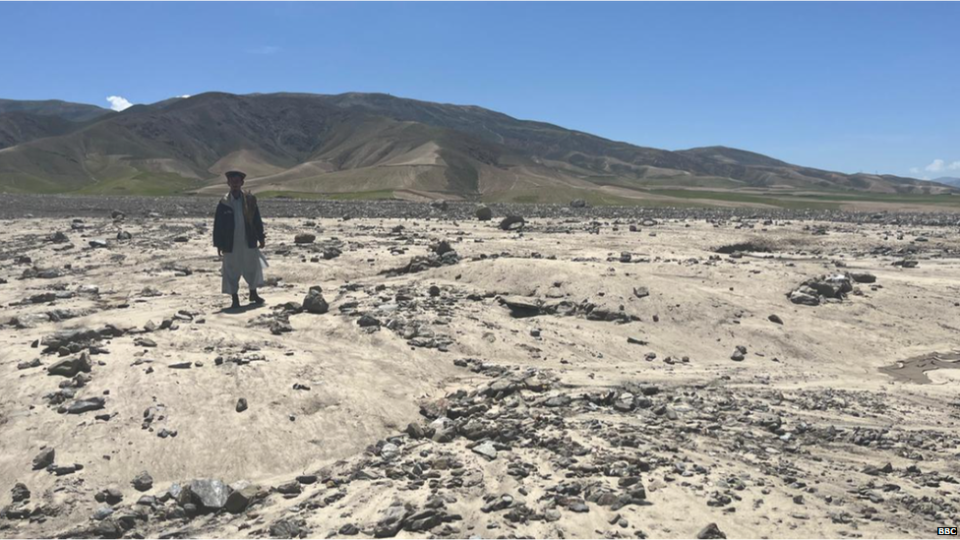
Others tell of the moment disaster struck - a shout went out that water was coming. Some were able to get out of its path, but lost all their possessions.
"I struggled to reach the next floor amidst the chaos. Our home and all our livestock were swept away," says Zuhra Bibi, who is now sleeping in a tarpaulin tent.
She says she's never seen anything like this before in her lifetime. Flooding is not uncommon, but in 20, 40, 60 years, we are told, none have seen a flood like this in their area.
In the village of Gudan Bala, Mohammad Rasool is chain-smoking cigarettes next to a field where his crops once grew. Now the field is a pool of thick muddy water.
Acres of farmland - fields of cotton and wheat crops - have been completely destroyed. We drive through wheatfields that have been cut in two by the force of the water, ripping out the green stalks, leaving grey rubble behind.
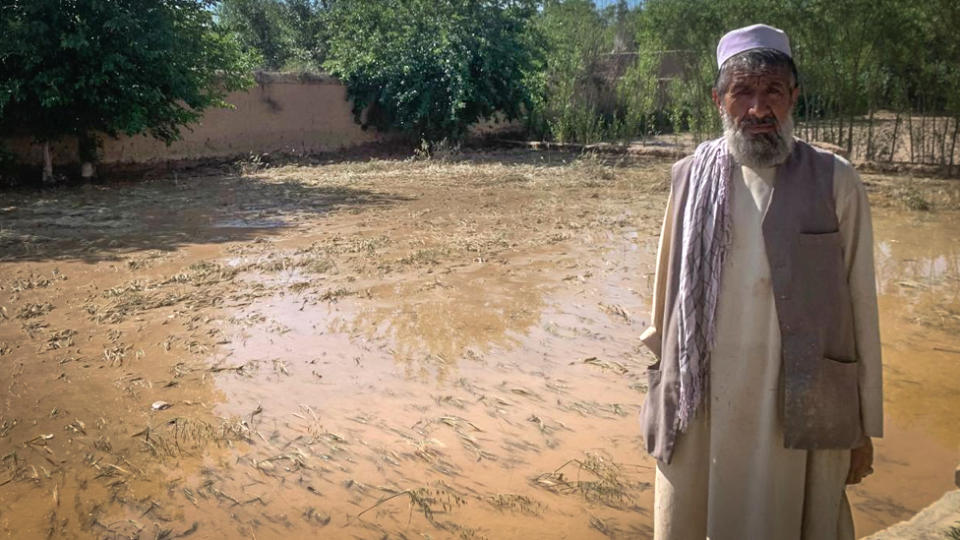
Mohammad feels fortunate that his family has survived, but says he has lost everything else.
He shows me the fields where his crops have been ruined.
"This was the only source of income I had," he says. "I feel helpless."
Like 80% of Afghans, he depends on agriculture for his income. Mohammad says he is not sure how they will survive.
He points to the remains of his house in the distance. He cannot return because the flood waters are still too high.
"I don't have anything now, what should I do? I have family to provide for but I have nothing."
Even before the floods hit, the UN estimated that about 24 million people, more than half the population of Afghanistan, would need some form of humanitarian assistance this year.
It is not just crops that have been affected. Mohammed says his neighbour lost his two cows in the floods. They were the man's only way of making a living.
And Noor, who is staying with his daughter, says the only possessions he has left are the clothes he is wearing. He had lived in the house that was swept away since he was a young boy - his father built it 65 years ago.
"I had hopes about the future," he says. "My son and granddaughter were teachers and I was proud because they were contributing to the future of the country."
Both are now dead. "The floods took everything," he says.
All photos copyright

